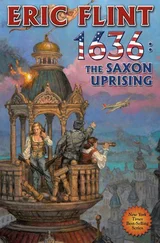Eric Flint - 1635 - The Cannon Law
Здесь есть возможность читать онлайн «Eric Flint - 1635 - The Cannon Law» весь текст электронной книги совершенно бесплатно (целиком полную версию без сокращений). В некоторых случаях можно слушать аудио, скачать через торрент в формате fb2 и присутствует краткое содержание. Жанр: Альтернативная история, на английском языке. Описание произведения, (предисловие) а так же отзывы посетителей доступны на портале библиотеки ЛибКат.
- Название:1635: The Cannon Law
- Автор:
- Жанр:
- Год:неизвестен
- ISBN:нет данных
- Рейтинг книги:3 / 5. Голосов: 1
-
Избранное:Добавить в избранное
- Отзывы:
-
Ваша оценка:
- 60
- 1
- 2
- 3
- 4
- 5
1635: The Cannon Law: краткое содержание, описание и аннотация
Предлагаем к чтению аннотацию, описание, краткое содержание или предисловие (зависит от того, что написал сам автор книги «1635: The Cannon Law»). Если вы не нашли необходимую информацию о книге — напишите в комментариях, мы постараемся отыскать её.
1635: The Cannon Law — читать онлайн бесплатно полную книгу (весь текст) целиком
Ниже представлен текст книги, разбитый по страницам. Система сохранения места последней прочитанной страницы, позволяет с удобством читать онлайн бесплатно книгу «1635: The Cannon Law», без необходимости каждый раз заново искать на чём Вы остановились. Поставьте закладку, и сможете в любой момент перейти на страницу, на которой закончили чтение.
Интервал:
Закладка:
"It is the least I can do for Your Eminence," said Sinceri with a small bow of his head. With that, and a few small pleasantries, he left.
Borja passed a few moments staring out at the garden, musing on the fact that he had now taken an irrevocable step that would end in either glory or disgrace. But the possibility of disgrace was so small as not to be worth thinking about. There was a calmness in him now that he took for a sign of divine favor. Once the Holy Spirit moved, hesitation or squeamishness surely took on the character of sin.
Audacity and ruthlessness would see the matter through. The only secret that truly needed to be kept would be Borja's own willingness to shape his means to fit his end, and do so without betraying his holy purpose with so much as a hint of scruple.
Ferrigno entered silently. "Signor Quevedo y Villega has arrived, Your Eminence."
"Send him in." Borja turned away from the window. "Have wine brought. The man is an incorrigible sot, and seems unable to speak without a cup in his hand." In any event, Borja felt that a small drink of wine would not be out of order, in toast to the enterprise he was beginning.
"As Your Eminence wishes." Ferrigno bowed himself out to attend to it.
There, Borja thought, was the secret to effective statecraft. A staff who got on with the matter at hand without undue frolics of their own. Francisco de Quevedo had been pressed on him by Osuna as a useful tool in the present business. He was not a tool that would have come naturally to Borja's hand. If nothing else, the dash the man had cut at court in Madrid these past few years had offended Borja's austere sensibilities. A satirist and a humorist and a man the Spanish Inquisition had had to censure for writings once already.
Quevedo's history of wild scheming-scheming that as often as not ended in disaster-suggested that he was a tool with a mind of his own. Such were dangerous. Had he not been in Italy raising Cain because he'd had to leave Spain for a while after killing a man in a duel? And, of course, the man's most prominent failure had been the Venetian plot, which was an additional risk in using him. There was another of the Venetian plotters in Rome, a man who knew Quevedo and might recognize him.
Against that risk there was the excellent record the man had of creating complete and imaginative chaos wherever he went. It was only to be expected that that was where the man's talents would lie, since his other claims to fame were as a soldier and a poet. At once a brute and an artist, a thought that forced another bark of laughter from Borja. Exactly what Rome needed right now.
If Quevedo's plotting erupted into a spectacular debacle, that was all to the good. A descent into anarchy was what Borja wanted for Rome. If the anarchy ran out of control, so much the better. There would be a very present remedy for that ailment on hand at just the right time, provided Osuna kept his part of his bargain. There would be troops and to spare in Naples for anything Borja saw fit to use them for.
There came a knock. "Enter," Borja said. A servant opened the door to usher the spy in while another brought the wine Borja had ordered.
Quevedo was all that his reputation said he would be. An older man in his fifties, he nevertheless carried himself with the arrogance of a man much younger. Tall, imposing, doubtless of the kind who in his younger days would have been a favorite with the less reputable sort of lady, he carried the marks of both dueling and drink on his face. His clothes were outlandish to Borja's eye, but then he had spent too little time in Rome to have paid notice to the fashions prevailing. Still, for a man who had made part of his career as a secret agent, he cut a remarkably striking figure.
"Your Eminence," Quevedo said, bowing low and sweeping off his hat, a plain black wide-brimmed affair which lacked the feathers usually seen on such but which did sport a colorful hatband.
He straightened up and addressed Borja with a small half-smile causing his dark but graying mustachios to quiver slightly, "I, Francisco de Quevedo y Villega, am at Your Eminence's most humble and dedicated service."
"Senor Quevedo. You have been briefed on this afternoon's proceedings at curia?"
Quevedo tossed his hat aside, on to a couch. "I have, Your Eminence. An agent within the Vatican staff proved most informative. Am I to assume that your business in Rome is to be transacted to its most full extent?"
Borja nodded. "My plans in that regard are not fully resolved. I have great hopes that His Holiness will heed the urgings of the Holy Spirit and come to a reasonable accommodation. In the meantime, what progress can you report with the business on which you were sent to Rome?"
"Satisfactory, Your Eminence. Rome is a city with, I must regretfully say, far too much time on its hands. There is a new fashion among the lower gentry to ape the manners of the Americans. Some of these lefferti, as they are known, are remarkably easy to lead into bad ways. One might express a pious regret at the ease with which the devil's work is done." Again, that little self-satisfied smile.
Although Quevedo had been a fixture at court in Madrid for a few years, he and Borja had little to do with each other. Indeed, this was the first time they had spoken directly-and Borja was finding the man disagreeable already.
"The devil's work, Quevedo?" he said, arching an eyebrow.
Quevedo threw back his head and laughed aloud. "Your Eminence seeks that the devil shall make merry that God's work be done under cover of the confusion. There are plenty of idle hands with which his infernal majesty might play, be sure of it."
"I shall thank you to keep a civil tongue in your head here, Quevedo, even if your japeries are tolerated at Madrid," Borja snapped.
Quevedo bowed again. "Your Eminence justly reproves and chastises his most humble servant, I, Francisco de Quevedo y Villega make most prostrate apology if my jesting words gave offense, which I assure Your Eminence was entirely without intent on my part."
Borja nodded acknowledgment. Clearly the man had all the polish of court, even if tarnished by incorrigible levity. "Handsomely done, Senor Quevedo. For my own part, I beg you forgive my testiness of manner. A man of my standing within the Church can abide not even jesting references to deviltry. However, do go on. The lefferti, you say?"
"Yes, Your Eminence. The American Harry Lefferts passed some months in Rome during 1633, and many of those with whom he kept company have taken to aping his manner of dress and disreputable ways. Uniformly low sorts of a kind with which Your Eminence will doubtless be unfamiliar. It takes little to bring them to brawling and license, as easy as leading pigs to the trough."
Quevedo gave a small sneer at the very prospect, although Borja knew full well that Quevedo's reputation-indeed, his all-but bragging in some of his bawdier poems-included a great many dalliances and the patronage of houses of ill-repute.
"It sounds like a most promising beginning. Senor Quevedo, your specific orders are now to raise all the foment you find yourself able to in Rome. You are unleashed to this task, and may draw on funds through my man Ferrigno. Anything and everything which may be done to the discredit of the House of Barberini and their governance of the city and the Church will be of assistance in our designs. Spare neither pains nor funds in your agitations."
Borja took up a cup of wine, noticing that Quevedo had not, in fact, done so already. "A toast, Senor Quevedo, to success in your enterprise!" he said, and drank.
Quevedo picked up a goblet for himself. "To the successful execution of Your Eminence's orders," he said, and drank in turn.
Borja set down his cup: the wine had been passable, at least, but he noticed the turns of phrase Quevedo had been using. "Let us indeed hope you are successful, Senor Quevedo," he said. "I should be unhappy to have to condemn a luminary of the Spanish Court before the Inquisition for foul deeds committed in Rome. It would embarrass His Most Catholic Majesty unduly, in a time when any embarrassment must be avoided by all of his loyal subjects."
Читать дальшеИнтервал:
Закладка:
Похожие книги на «1635: The Cannon Law»
Представляем Вашему вниманию похожие книги на «1635: The Cannon Law» списком для выбора. Мы отобрали схожую по названию и смыслу литературу в надежде предоставить читателям больше вариантов отыскать новые, интересные, ещё непрочитанные произведения.
Обсуждение, отзывы о книге «1635: The Cannon Law» и просто собственные мнения читателей. Оставьте ваши комментарии, напишите, что Вы думаете о произведении, его смысле или главных героях. Укажите что конкретно понравилось, а что нет, и почему Вы так считаете.











